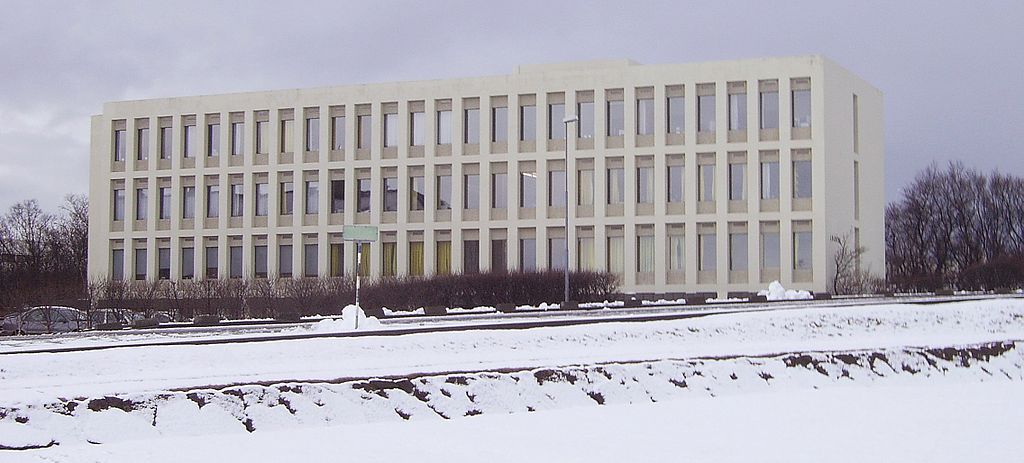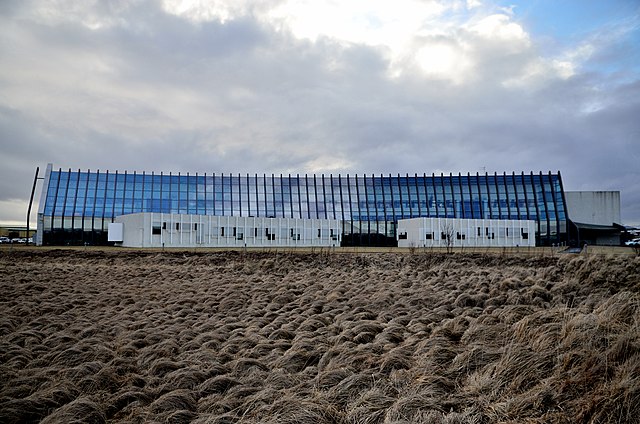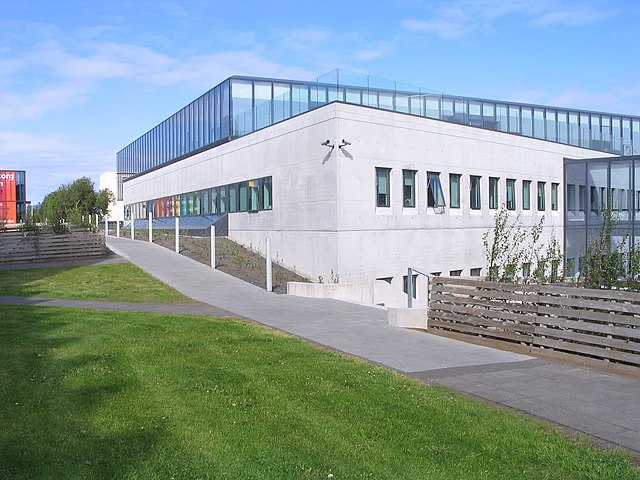
As Thammasat University students get into the habit of distance learning and online education, they may choose to learn and practice their English by enrolling in a free massive open online course (MOOC) at the University of Iceland.
The University of Iceland is a public research university in Reykjavík, Iceland and the country’s oldest and largest institution of higher education. It is a modern comprehensive university providing instruction for about 14,000 students in twenty-five faculties. Teaching and research is conducted in social sciences, humanities, law, medicine, natural sciences, engineering and teacher education.
The TU Library owns some books about Iceland, a Nordic island country in the North Atlantic, one of the most sparsely populated country in Europe. The capital and largest city is Reykjavík. Iceland is volcanically and geologically active.
University of Iceland MOOCs include one on Intercultural Competency in Education:
Do you want to learn practical skills to become interculturally competent and aware as an educator? Take this course and learn to develop strategies to deal with identities in a fairer and more coherent way.
About this course
Some of the challenges we are facing in the world today are related to the ongoing trends towards immigration and globalization of education and the labour market. Combined with increased numbers of refugees in many countries, this has led to greater interpersonal cross cultural encounters and heightened cultural concerns. All school levels are facing complex challenges in adjusting their services to an increasingly diverse student population, irrespective of their background. It is therefore of great importance that employees at all school levels are culturally competent and can understand and adapt their services when working with people with diverse cultural backgrounds.
The aim of this course is to help the students develop intercultural competence by broadening their understanding of different cultures and different identities, as well as promoting students´ awareness of their own culture, learning from the experiences of international educators as well as professionals at the municipality level in the Nordic countries.
An added value is that the course is open to participants from different parts of the world, which creates a cross-cultural learning and teaching environment.
By the end of this course you should have learned practical intercultural skills and increased your understanding of intercultural competence; how to talk about and address intercultural opportunities and challenges, how to develop strategies to respond to diverse and hybrid identities in a fairer way, and how to promote social justice in education and respect for different languages, preventing conflicts and enhancing societal cohesion.
What you’ll learn
- The meaning of basic concepts like ethnocentrism, stereotypes and culture
- The importance of self-awareness and curiosity as a way towards intercultural awareness
- Awareness of the impact of negative generalisations
- How to deal with contradictions when identities are constructed
- How to become aware of your own influence on students’ identities, and to develop strategies to deal with identities in a fairer and more coherent way
- The importance of promoting understanding through respect for intercultural dialogue and the value of different languages
- How to increase students´ levels of participation in the classroom, building up a sense of belonging and community, as well as counteracting discrimination
- How to draw lessons from success stories of immigrant students and school communities in different countries that have succeeded in developing learning contexts that are equitable and socially just.
The class will be taught by, among others, Professor Hanna Ragnarsdóttir of The University of Iceland and Associate Professor Greta Björk Gudmundsdottir of the University of Oslo.
TU students of geology and other sciences may be interested by another MOOC on Monitoring Volcanoes and Magma Movements:
The course covers magma movements in volcanoes and how they can be inferred from ground based and satellite monitoring techniques, including studies of earthquakes, ground deformation, and volcanic gas release. Case studies are presented.
About this course
The course gives an introduction to volcano monitoring techniques, magma movements and volcano unrest. It also presents some aspects of why volcanoes are dangerous and volcanic hazards. Volcano monitoring relies on diverse approaches to infer the state of a volcano so many different instruments and techniques are used to monitor volcanoes. Predicting eruptions or forecasting future activity of a volcano is based on monitoring data. If activity level rises above normal the volcano is in a state of unrest. Magma often intrudes in the roots of volcanoes prior to eruptions. This process generates earthquakes as stress level is increased and ground deformation as the volcano expands in response to additional mass in its subsurface. Seismology and geodetic measurements on the surface of the volcano are thus key to monitoring subsurface conditions…
What you’ll learn
- Develop an understanding of volcanic plumbing systems and magma movements in volcanoes.
- Develop an understanding of the concept of volcanic unrest.
- Become familiar with volcano monitoring techniques.
- Understand how seismology is used to study volcano earthquakes.
- Understand how volcano geodesy is used to map ground deformation on volcanoes.
- Understand what volcanic gas tells us about magma movements.
- Understand what produces variations in geothermal activity on volcanoes.
- Understand how satellites can be used effectively to map changes on volcanoes…
Instructors will include Professor Freysteinn Sigmundsson, Research Professor of geophysics and volcanoes at The University of Iceland and Associate Professor Halldór Geirsson, Associate Professor of geophysics at the Faculty of Earth Sciences, The University of Iceland.
Another related course of interest to TU students in several different faculties, including economics, history, and biology, would be Sheep in the Land of Fire and Ice:
What do sheep, volcanoes and glaciers have in common? Take this course to see how human land uses, like sheep grazing, over just a few centuries can be an equally strong driving force of landscapes as volcanoes and glaciers over millennia.
About this course
Land use without adequate management can drive environmental degradation. Grazing management is an example of such land use and represents a common problem in many regions of the world. The aim of this short course is to raise awareness of the environmental risks associated with unsustainable management of natural resources. This course uses Iceland as a case study because here traditional sheep grazing has been associated with extensive environmental degradation. We examine the sustainability of sheep grazing in Iceland and explore how history, socioeconomic factors and environmental conditions have influenced the management of grazing resources. The development of sustainable management practices needs to take into account ecological, as well as economic and social aspects. We can devise general rules and guiding principles for management based on our current understanding of the socio-ecological systems, but fine-tuning of specific management decisions, for example regarding stocking rates or the duration of the grazing season will have to be site-specific. A better understanding of the consequences of these practices and how their ecological impacts vary under different environmental conditions will improve management decisions and increase the sustainability of management practices in the face of ongoing environmental changes.
What you’ll learn
- The cultural, historical and economic relevance of sheep grazing in Iceland
- Current issues, initiatives and approaches to sheep grazing management in Iceland
- Basic ecological principles that govern grazing systems, their complexity and dynamics
Instructors will include Professor Ingibjörg Svala Jónsdóttir of The University of Iceland and Professor David S. Hik, a professor of Terrestrial Ecology of Simon Fraser University, Canada.

(All images courtesy of Wikimedia Commons)

